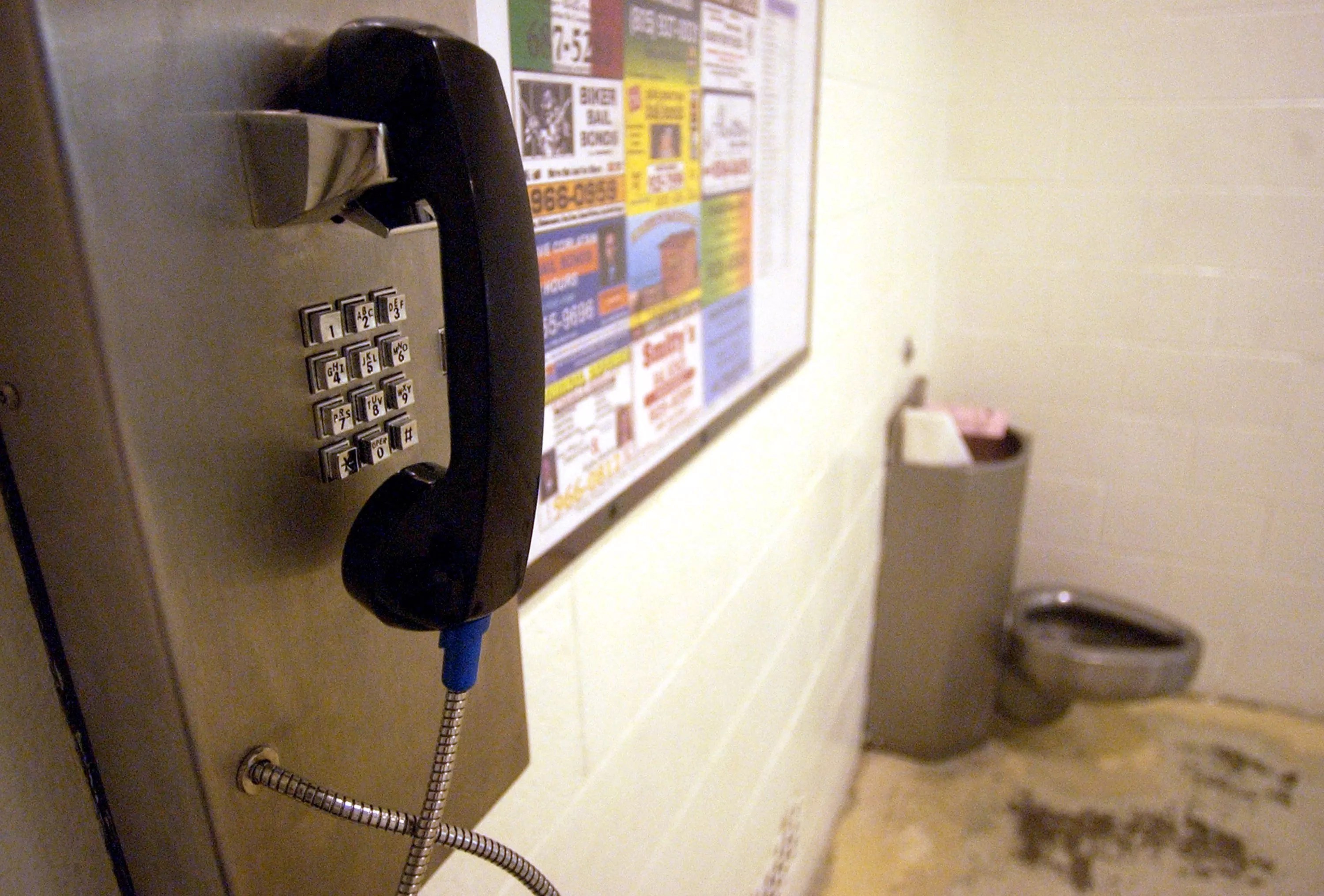
Photo by Aaron Lambert/Getty Images

Audio By Carbonatix
A company that uses surveillance software to monitor U.S. prisoners’ phone calls is on the verge of deploying its technology across the Sunshine State.
LEO Technologies, a Los Angeles-based company that transcribes prisoner communications in real-time using an artificial intelligence speech-to-text feature, is marketed as a way to monitor inmate health, improve prison security, and thwart crime. Despite spawning concerns over overzealous surveillance and potential misuse, the software – known as Verus – has been sold and deployed across nearly a dozen states.
After securing a spot on a proposed statewide budget, the company is about to add Florida prisons to its list of customers.
Ahead of the 2023 state legislative session, LEO Technologies, through its chief executive Scott Kernan, asked Florida lawmakers for $5 million in state funds to launch a pilot program at nearly two dozen Florida Department of Corrections (FDC) facilities, where it would monitor prisoner communications to “increase safety and security” and “detect criminal trends and inmate welfare patterns,” such as helping identify prisoners experiencing mental health episodes.
“FDC will be at the forefront of aggregating authorized communications for intelligence and information to help keep communities across Florida safer,” the February 27 funding request (attached below) states.
The proposal, known as a local funding initiative request, was sponsored by Republican Florida state Sen. Travis Hutson, who represents St. Johns and Putnam counties along with a sliver of Volusia.
The request made it onto the 2023-24 Florida Senate’s proposed state budget with $2.5 million in state funding allotted for LEO Technologies’ project. The budget will soon go to the governor’s desk for approval.
Based on Amazon Web Services Natural Language Processor machine-learning, the software can detect flagged words to help combat crime and security issues in correctional facilities, LEO Technologies says.
As of mid-2020, Verus was in use at 26 prisons and jails in 11 U.S. states. According to the LEO Technologies website, the software was involved in nearly 90 suicide prevention incidents in 2019 alone. The tool has also been used to help in high-profile missing persons cases, the company says.
But civil rights activists have raised concerns over the years about the artificial intelligence-powered technology. While constitutional protections against warrantless search and seizure are curtailed for prisoners while they are behind bars, activists maintain that the technology is overly intrusive and sweeps through a huge volume of personal phone calls by incarcerated Americans, many of whom are still awaiting trial.
In April 2020, several U.S. states began using the software to scan prisoner calls for mentions of COVID-19 as a means to monitor outbreaks. Although LEO Technologies sent data to its clients boasting about flagging thousands of calls that spring based on keywords like “cough” and “infection,” concerns were raised that the software may also have been employed to screen public perception of jails during the pandemic.
A 2021 Reuters investigation into LEO Technologies’ AI system found that some prison and jail officials have used the software to eavesdrop on calls about a wide range of personal subjects.
In one instance, Alabama prison officials were found to have used the software to search for phone calls in which prisoners vouched for the facility’s cleanliness – seeking ammunition to fight litigation, according to Reuters. In Suffolk County, New York, the county jail was found to have been scanning up to 600,000 minutes worth of phone calls per month, at one point flagging a call in which an inmate told his father the jail was covering up a coronavirus outbreak.
The Intercept’s 2020 report on LEO Technologies indicated that it was backed by Elliot Broidy, the Republican National Committee’s ex-national deputy finance chair and former mega Donald Trump donor who was pardoned in 2021 after pleading guilty to conspiring to violate foreign lobbying laws in connection with his work on behalf of Malaysian and Chinese interests.
Broidy is among those listed on a software technology patent granted to LEO Technologies in February 2022.
According to its site, LEO Technologies was founded by former law enforcement officers “committed to law enforcement reform.” The company is part of a group of large-scale prison communication contracting companies that includes Securus and GTL, both of which offer monitoring services but, unlike LEO Technologies, provide prison phone infrastructure.
LEO’s chief executive Kernan is a former California Department of Corrections and Rehabilitation secretary. He is also on the board of directors for GEO Group, the nation’s largest private, for-profit prison firm.
Neither LEO Technologies nor FDC has responded to New Times’ request for comment.